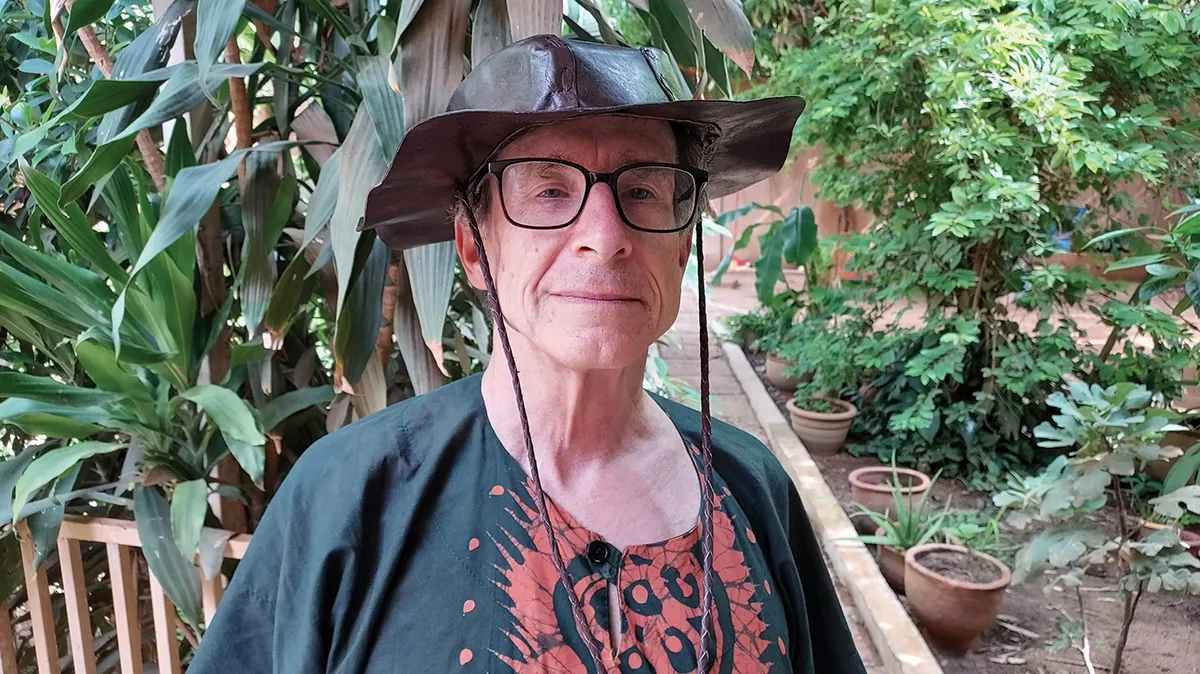Trapped in Niger
say this with no umbrage to Vassar: Just months before graduating, I was totally oblivious to the existence of the country to which a Peace Corps recruiter was offering to send me. I high-tailed it to the Thompson Library, ferreted out the atlas section, and saw to my surprise that not only was this the name of an actual country but that it took up a significant swath of territory in the Sahara Desert. Its name? Niger.
Fast forward 46 years, to last July. It was my eleventh visit back to this country since my Peace Corps service; once you’ve made friends in a local language, your tongue aches for you to return. In the interim I had lured a woman there from Martinique to see if she could “hack it.”
Niger is a country that has ranked last on the United Nations Human Development Index longer than any other. Long obscured by poverty and perceived irrelevance, the country shot to the fore of global American consciousness when in 2003 President George W. Bush identified it—falsely, as it turned out—as the provenance of uranium for Saddam Hussein’s phantom program of weapons of mass destruction. But it is true that in the decades since 9/11, Niger has been periodically plagued by terrorism, from the random murders of peaceful villagers to the kidnapping of Western tourists for ransom. Through it all, the Nigérien people—like others throughout West Africa—have remained remarkably vibrant, hopeful, and welcoming. That includes those of Senegal, where in 2012 I visited our then grown-up son and met the Acting Peace Corps Director Pamela Martin. We didn’t know it at the time, but Pam and I had been classmates at Vassar. (Sometimes, it takes a coup d’état to connect with a classmate …)

It felt like a variation of another lockdown that we’d all experienced: the one during the COVID-19 pandemic. The restlessness, the apprehension tinged with boredom. When might I be free to travel? When will it end? Only this time, the cause was not viral but political.
Martinique is part of France the way that Hawaii is part of the U.S., so by virtue of my marriage to a French citizen—the one I had lured to Niger thirty-eight years prior—I managed to secure a seat on one of the evacuation flights from Niamey to Paris operated by the French Air and Space Force. Met at Charles de Gaulle Airport by the French Red Cross and two diplomats from the American Embassy in Paris, I was filled both with relief and regret—relief for my escape, but regret for the compatriot and country I had left behind.
A country where I had brought our ten-year-old son to help resolve an inheritance dispute over the family horse (resulting in our co-authored book, My African Horse Problem, in 2008); a land where I crunched on fried grasshoppers with our sixteen-year-old daughter (the same person who resisted eating sea fish transported a thousand miles overland from the nearest coast). A country I knew not during my four years in Poughkeepsie, but which the Peace Corps seared into my soul—as it has done with dozens, if not scores, of other Vassar alums in other enchanting lands.